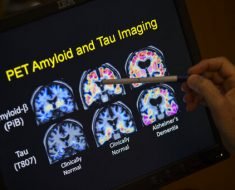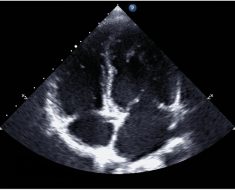Researchers at Western University have shown that the recall of traumatic memories enhances the rewarding effects of morphine, shedding light on the neurobiological link between post-traumatic stress disorder (PTSD) and opioid addiction.
Steven Laviolette, PhD, associate professor at Western’s Schulich School of Medicine & Dentistry says the research was aimed at finding the underlying neural mechanism that might help to explain why almost 60 per cent of those who suffer from PTSD, also struggle with addiction issues.
Laviolette and his team demonstrated in a study published online today in JNeurosci that dopamine receptors in the prefrontal cortex of the brain likely play a role because of their involvement in both traumatic memory recall and addiction vulnerability. The researchers focused on two dopamine receptors in the pre-frontal cortex, D1 and D4.
“What we were trying to find is a mechanism to account for why recall of traumatic memories, such as what you see in PTSD, make some more vulnerable to addictive effects of drugs like opioids,” said Laviolette.
Using a rodent model, the researchers found that if they stimulated the D4 receptors, it made a normally non-traumatic memory become emotionally salient, or traumatic, which also led to an increased preference for morphine. They also showed that if they blocked the D1 receptor, they blocked the traumatic memory recall and lessened the rewarding effect of the morphine.

The results suggest that abnormal dopamine signals in the prefrontal cortex may underlie the ability of traumatic memories to predispose individuals to addiction by increasing their sensitivity to the rewarding effects of drugs such as opioids.
“The main finding is that the D1 and D4 receptors independently control both the impact of traumatic memory recall and how that modulates the increased vulnerability to opioid addiction,” said Laviolette. “So even if they’ve gone through the traumatic experience, if you can block the recall, you can simultaneously block the increased addiction vulnerability.”
Source: Read Full Article





